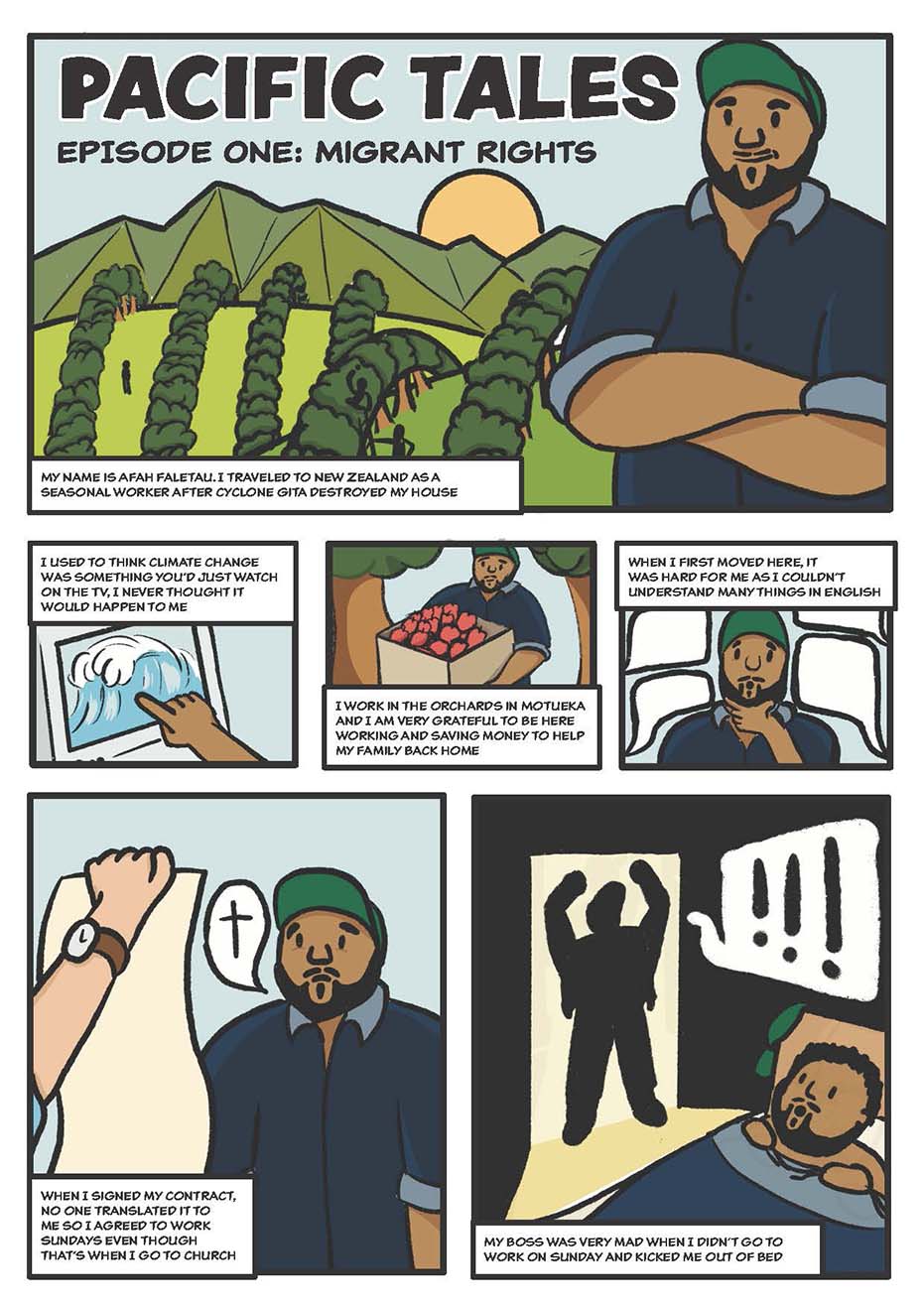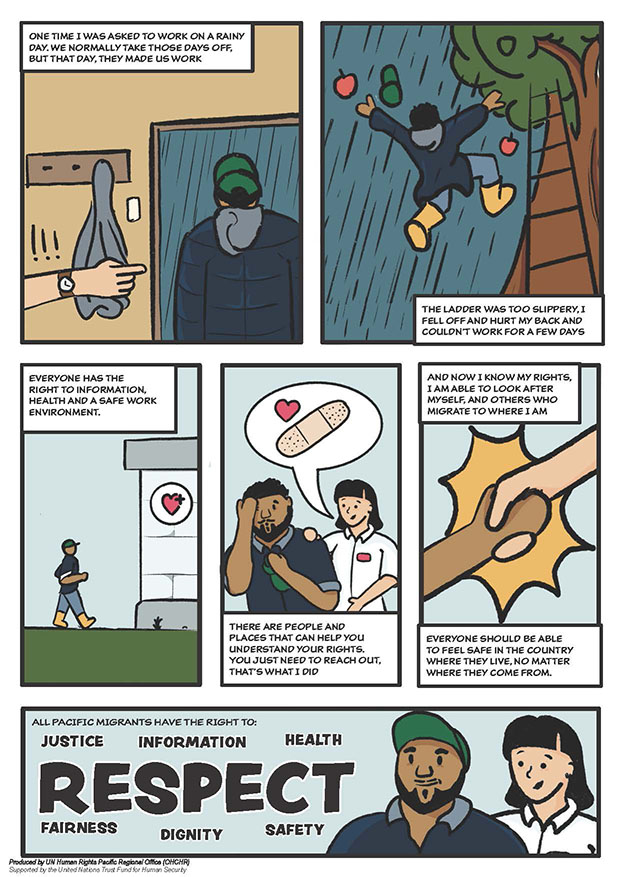Pacific Climate Tales
Pacific Climate Tales
Protecting human rights of Pacific people on the move
Protecting human rights of Pacific people on the move
While the Pacific contributes little to global carbon emissions, a growing number of Pacific Islanders are facing increasing impacts of climate change such as severe cyclones, sea level rise and flooding.
As Pacific Islanders call on those who are most responsible for climate change to take greater responsibility, their small and low-lying islands bear the brunt of the harsh impacts of climate change. Pacific Islanders are increasingly being forced to move away from their homes in response to climate change and environmental degradation, and many who join seasonal labour migration schemes, do so to rebuild what they have lost, or to strengthen the resilience of their communities back home.
These are their stories.
Why a toolbox for advocacy and change?
Pacific Islanders who leave to work and live abroad in the context of climate change can suffer discrimination, abuse and human rights violations through these migrations. Living in an unfamiliar country, often unable to bring their family to live with them, facing language barriers, cultural misunderstandings, and a lack of support and accessible information migrants from the Pacific are often in situations of vulnerability. For those on temporary seasonal migration schemes, it is not only labour rights which must be upheld, but the full constellation of human rights such as the right to family life, to an adequate standard of living, to health and social security, freedom of association and freedom of religion, non-discrimination and access to justice.
This campaign from the UN Human Rights Office aims to tell migrants’ stories and raise migrants’ voices in the communities in which they live and work. Their voices are critical in discussions about climate mobility, adaptation and human rights in the Pacific and worldwide and UN Human Rights is supporting efforts to create a regional protection framework on climate change and migration. Stories have the power to uplift, inspire and connect and UN Human Rights aims through these stories to show that migrants and the communities that welcome them are stronger together.


